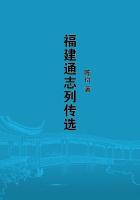The abolition of the antithesis between town and country was demanded by Fourier, as by Owen, as the first basic prerequisite for the abolition of the old division of labour altogether. Both of them thought that the population should be scattered through the country in groups of sixteen hundred to three thousand persons; each group was to occupy a gigantic palace, with a household run on communal lines, in the centre of their area of land. It is true that Fourier occasionally refers to towns, but these were to consist in turn of only four or five such palaces situated near each other. Both writers would have each member of society occupied in agriculture as well as in industry; with Fourier, industry covers chiefly handicrafts and manufacture, while Owen assigns the main role to modern industry and already demands the introduction of steam-power and machinery in domestic work. But within agriculture as well as industry both of them also demand the greatest possible variety of occupation for each individual, and in accordance with this, the training of the youth for the utmost possible all-round technical functions. They both consider that man should gain universal development through universal practical activity and that labour should recover the attractiveness of which the division of labour has despoiled it, in the first place through this variation of occupation, and through the correspondingly short duration of the "sitting" -- to use Fourier's expression -- devoted to each particular kind of work. Both Fourier and Owen are far in advance of the mode of thought of the exploiting classes inherited by Herr Dühring, according to which the antithesis between town and country is inevitable in the nature of things; the narrow view that a number of "entities" {D. C. 257} must in any event be condemned to the production of one single article, the view that desires to perpetuate the "economic species" {329} of men distinguished by their way of life -- people who take pleasure in the performance of precisely this and no other thing, who have therefore sunk so low that they rejoice in their own subjection and one-sidedness. In comparison with the basic conceptions even of the "idiot" {D. K. G. 286} Fourier's most recklessly bold fantasies; in comparison even with the paltriest ideas of the "crude, feeble, and paltry" {295, 296} Owen -- Herr Dühring, himself still completely dominated by the division of labour, is no more than an impertinent dwarf.
In ****** itself the master of all the means of production to use them in accordance with a social plan, society puts an end to the former subjection of men to their own means of production. It goes without saying that society cannot free itself unless every individual is freed. The old mode of production must therefore be revolutionised from top to bottom, and in particular the former division of labour must disappear. Its place must be taken by an organisation of production in which, on the one hand, no individual can throw on the shoulders of others his share in productive labour, this natural condition of human existence; and in which, on the other hand, productive labour, instead of being a means of subjugating men, will become a means of their emancipation, by offering each individual the opportunity to develop all his faculties, physical and mental, in all directions and exercise them to the full -- in which, therefore, productive labour will become a pleasure instead of being a burden.
Today this is no longer a fantasy, no longer a pious wish. With the present development of the productive forces, the increase in production that will follow from the very fact of the socialisation of the productive forces, coupled with the abolition of the barriers and disturbances, and of the waste of products and means of production, resulting from the capitalist mode of production, will suffice, with everybody doing his share of work, to reduce the time required for labour to a point which, measured by our present conceptions, will be small indeed.
Nor is the abolition of the old division of labour a demand which could only be carried through to the detriment of the productivity of labour.
On the contrary. Thanks to modern industry it has become a condition of production itself. "The employment of machinery does away with the necessity of crystallising the distribution of various groups of workmen among the different kinds of machines after the manner of Manufacture, by the constant annexation of a particular man to a particular function. Since the motion of the whole system does not proceed from the workman, but from the machinery, a change of persons can take place at any time without an interruption of the work... Lastly, the quickness with which machine work is learnt by young people, does away with the necessity of bringing up for exclusive employment by machinery, a special class of operatives." But while the capitalist mode of employment of machinery necessarily perpetuates the old division of labour with its fossilised specialisation, although it has become superfluous from a technical standpoint, the machinery itself rebels against this anachronism. The technical basis of modern industry is revolutionary. "By means of machinery, chemical processes and other methods, it is continually causing changes not only in the technical basis of production, but also in the functions of the labourer, and in the social combinations of the labour-process. At the same time, it thereby also revolutionises the division of labour within the society, and incessantly launches masses of capital and of workpeople from one branch of production to another.















